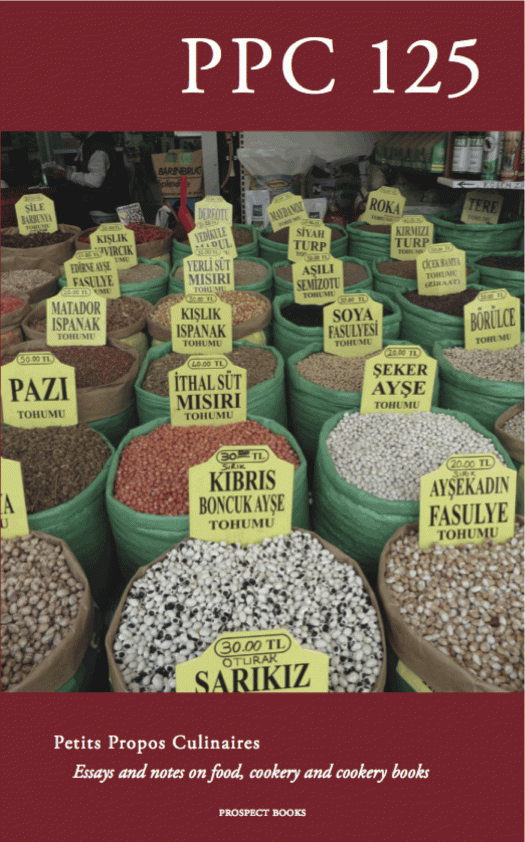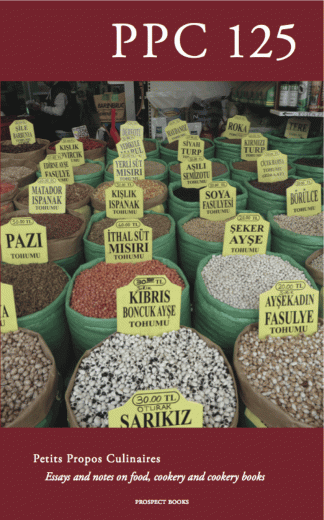Description
PPC 125 (April 2023)
Buy an individual article from this issue here or read article abstracts
|
A taster from Gastronomic Irony by Spencer J. Weinrich
The classic(al) depiction of gastronomic irony is Seneca the Younger’s first-century drama Thyestes, a gruesome tragedy not to be read on a full stomach. Atreus, king of Argos, takes a ghastly revenge upon his brother and erstwhile rival for the throne, Thyestes. With specious promises of a reconciliation, Atreus lures his banished brother home. He murders Thyestes’s sons and plies their father with dishes made from their flesh and wine mixed with their blood. Once a grotesquely triumphant Atreus has revealed the truth, the play ends with their recriminations. The horrified Thyestes promises, ‘The gods of vengeance will come. My prayers consign you to them for punishment.’ To which Atreus chillingly replies, ‘You I consign to your children for punishment’ (ll. 1110–11). From this bloodstained play, and from other imagined repasts, I shall try to delineate how gastronomic irony works.
As with dramatic irony, the audience tends to be in on gastro- nomic irony. Alfred Hitchcock once explained the importance of information to dramatic tension. ‘Four people are sitting around a table, talking about baseball, whatever you like. Five minutes of it, very dull. Suddenly, a bomb goes off. Blows the people to smithereens. What do the audience have? Ten seconds of shock.’ But imagine the identical scene, with one alteration: ‘tell the audience there is a bomb under that table, and will go off in five minutes. Well, the whole emotion of the audience is totally different because you’ve given them that information …. Now the conversation about baseball becomes very vital. … You’ve got the audience working.’2 Watching Thyestes gorge himself in the play’s fifth act, the audience feels the horrible significance of each bite and sip because in the fourth, one of the innumerable messengers who populate ancient drama had described Atreus’s murderous cookery in literally gory detail. So, too, in Red Dragon (2002), a dinner guest demands, ‘Hannibal, confess: what is this divine-looking amuse bouche?’ Her host, Hannibal Lecter, smiles coyly, ‘If I tell you … I’m afraid you won’t even try it.’ The diners laugh, but the audience squirms. For we know what Hannibal knows and what his guests do not – that the amuse bouche consists of the inept flautist whose disappearance the party has just been discussing.
The substance of the meal is abomination, a broken taboo on a plate. To eat of forbidden fruit is to violate primordial inhibitions (cannibalism, coprophagy) or sacred definitions of pure and impure, clean and unclean. The food historian Paul Freedman interprets such prohibitions as being animated by the sense of ‘trespass, the consequences of disobedience to God’s ordinances,’ but also by horror at the act of consumption itself. ‘The very idea of tasting these things evokes an instinctual disgust.’3 Eating wrongly activates our deepest and strongest prejudices: both Herodotus (Histories III.38) and Michel de Montaigne (‘Of Cannibals’) illustrate the immense power of custom with
the taboos of the table. And if, in the famous dictum of Brillat- Savarin, we are what we eat, what have we become when we have eaten something repugnant, albeit unawares?4 Every vegetarian or vegan knows the knot of feelings that follow from the unwelcome surprise: chagrin, self-reproach, queasiness, and a vague sense of being somehow unclean. Ingestion (literally, carrying in), the act of making something a part of oneself, is the quintessence of the intimate (literally, the inmost).


